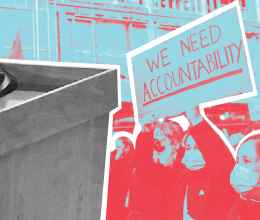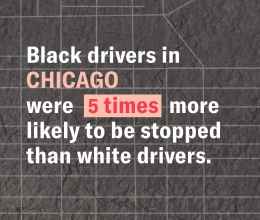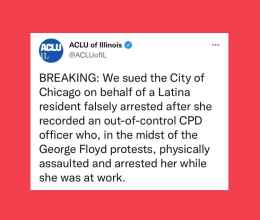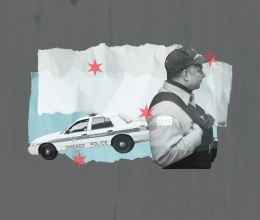
House Bill 1948 – which passed both the Illinois House and Illinois Senate unanimously – requires agencies that own or have access to certain kinds of video surveillance cameras to disclose (on an annual basis) to the Illinois Criminal Justice Authority (ICJIA) the number of cameras they own or have access to, and their privacy regulations, if they have any. The bill also requires this information to be posted on the website of the ICJIA. The legislation is an effort to ensure a small measure of transparency in the operation of these powerful, technologically-sophisticated cameras. The ACLU and the sponsors of the bill believe that the public should know how many cameras the government is operating.
Governor Pat Quinn’s amendatory veto of House Bill 1948 shortchanges the public’s ability to see a complete picture of the breadth and reach of surveillance in Illinois today. The Governor’s amendatory veto allows for the holding back of information about the number of cameras that governmental agencies can access. The Governor’s changes require only the disclosure of cameras owned or that are under the direct control of an agency. This definition fails to capture, for example, private surveillance cameras in the City of Chicago that are not owned by the City but are integrated into Chicago’s extensive surveillance system.
Moreover the Governor excludes from application of the bill correctional facilities, county or municipal jails, courthouses, police stations, power plants, water treatment facilities and airports purportedly due to a concern that the reporting of the number of cameras owned by an agency poses a public safety threat. It is difficult however, to discern when location of the cameras is not disclosed, how the disclosure by an agency such as IDOC of merely the total number of cameras owned or accessed, presents any risk to public safety since the aggregate figure shows no breakdown of how many cameras are located at any site.



